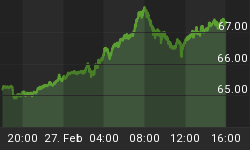Saudi Arabia, whose crown prince is enamored with Hollywood, has recently lifted the nearly 40-year ban on cinema and it’s diving right in: The Kingdom will invest $64 billion to turn it into a top-tier destination for the movie industry.
Despite all previous and ongoing controversies around Saudi Arabia’s human rights record, Hollywood already has several movies currently under production or are being considered for shooting in the Kingdom.
Four years ago, Saudi Arabia’s sovereign wealth fund, the Public Investment Fund, (PIF) said it was developing a new branch with an initial $2.6 billion capitalization to focus on entertainment investments.
According to the Vision 2030 reform program, Saudi Arabia will invest a total of $64 billion in developing its entertainment industry over the next decade.
Aside from entertainment, Saudi Vision 2030 aims to reduce Saudi Arabia's dependence on oil, diversify its economy, and develop public service sectors, including recreation and tourism.
The government also aims to create new employment opportunities, where by 2030 it will create over 22,000 jobs and contribute over $2 billion to GDP.
The citizens of Saudi Arabia—70 percent of whom are under the age of 30--are spending $20 billion overseas every year on the hunt for entertainment and the authorities are trying to keep some of that money home.
Back in the early 1980s, Saudi Arabia closed down its cinemas under pressure from Islamists. Now, lifting the ban doesn’t mean a complete change of heart: censorship will still play a role.
In 2019, Netflix withdrew an episode of Patriot Act because the Saudi government complained that the comedy criticized the Crown Prince.
More recently, Saudi Arabia (along with a few other Gulf States) banned the new Marvel movie “Eternals” after Disney reportedly refused to cut a same-gender kiss. Homosexuality is still illegal across much of the region and punishable by death in Saudi Arabia.
A similar ban occurred last year with Pixar’s Onward, which featured a brief scene involving a lesbian cyclops police officers.
Under Saudi Crown Prince Mohammed bin Salman (aka MBS), the kingdom is trying to shake off its ultra-conservative image, but so far it has been rather cosmetic.
Aside from lifting the cinema ban, the Kingdom has also ended its ban on women driving, but then proceeded to arrest female activists who had pushed for the ban.
In yet another ‘progressive’ decision, as of 2019, women in Saudi Arabia can now travel abroad without a male guardian's permission. However, their husbands or any other male relative can still monitor their whereabouts via popular government run app Absher.
Other than that, an obvious obstacle in achieving the Vision 2030 goals is the intense criticism in 2018 following the murder of Saudi journalist Jamal Khashoggi inside the Saudi consulate in Istanbul by Saudi agents.
In the aftermath of the Khashoggi murder, Saudi Arabia became a far less attractive venue for international investors.
Last year, at the PIF organized annual investment forum called the Future Investment Initiative, many top companies’ CEOs backed out of the conference.
Also, in 2019 California-based Endeavor talent agency returned a $400-million investment from Saudi Arabia by way of protesting the Khashoggi murder.
















